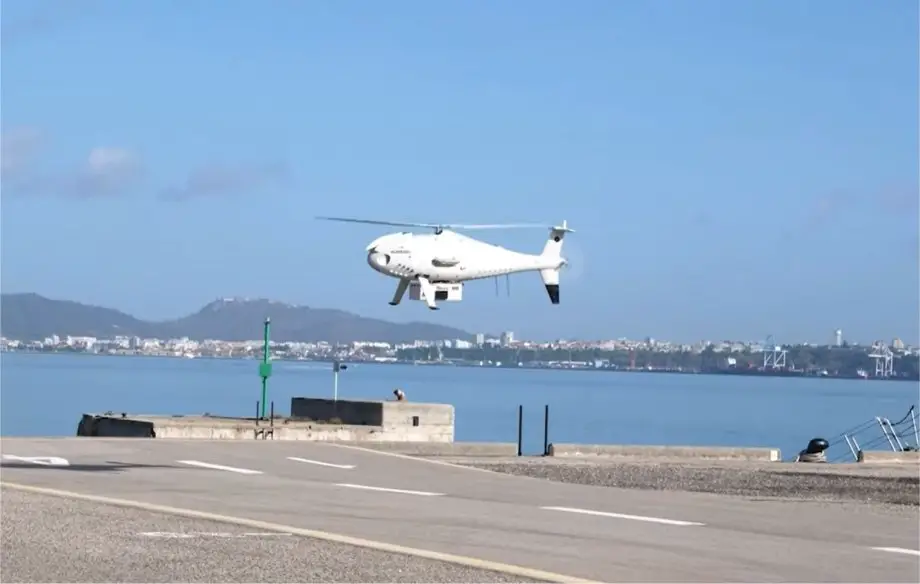Breaking news
EU becomes co-organizer of Portuguese Navy's REPMUS Exercise.
According to information published by the European Defence Agency on March 15, 2024, the EDA has partnered with the Portuguese Navy to co-organize the 14th Robotic Experimentation and Prototyping Maritime Unmanned Systems (REPMUS) Exercise.
Follow Navy Recognition on Google News at this link
 Camcopter S-100 UAV during the edition 2023. (Picture source: NATO)
Camcopter S-100 UAV during the edition 2023. (Picture source: NATO)
Scheduled to run from September 9 to 27, 2024, the exercise will also see participation from Oporto University, the NATO Centre for Maritime Research and Experimentation, and the NATO Joint Capability Group Maritime Unmanned Systems. This edition of REPMUS is expected to attract a wider range of international and multi-stakeholder involvement than previous editions.
The objective of REPMUS 2024 is to conduct large-scale operational experimentation in the maritime and amphibious domains. It aims to facilitate the engagement of operational communities with the industry and academia, integrating the latest commercial off-the-shelf systems for trials.
The exercise will also focus on validating experimental tactics, upgraded vehicles, software updates, integrated payloads, and command and control on Maritime Unmanned Systems (MUS) to address key operational issues.
Edition 2023
During the last edition, two drones were highlighted for their technical specifications and capabilities: the Schiebel Camcopter S-100 and the BAE Systems' T-600.
Schiebel Camcopter S-100
The Schiebel Camcopter S-100 is a rotary-wing unmanned aerial vehicle that participated in REPMUS and Dynamic Messenger 2023 exercises, demonstrating a variety of capabilities.
These included Anti-Submarine Warfare (ASW) via sonobuoy deployment, bathymetric scanning for Rapid Environmental Assessment (REA), Mine Counter Measures (MCM), and deployment of Autonomous Underwater Vehicles (AUVs) and profiling floats.
The drone deployed NATO-standard G-size sonobuoys for ASW, demonstrated airborne MCM mine hunting capability with a detection rate of 100% for mine targets, and supported REA missions.
BAE Systems' T-600
The T-600, developed by BAE Systems, is an electric-powered aircraft capable of vertical take-off and landing (VTOL), designed for heavy lifting with a capacity of carrying a 200kg payload.
It can travel at speeds up to 140km/h with a range of up to 80km, dependent on the payload. During the REPMUS exercise, it achieved a milestone by successfully releasing an inert Sting Ray training variant of an anti-submarine torpedo during a sea flight mission. This drone highlights advancements in maritime unmanned systems with potential applications in logistics, resupply, casualty evacuation, and anti-submarine warfare.
























